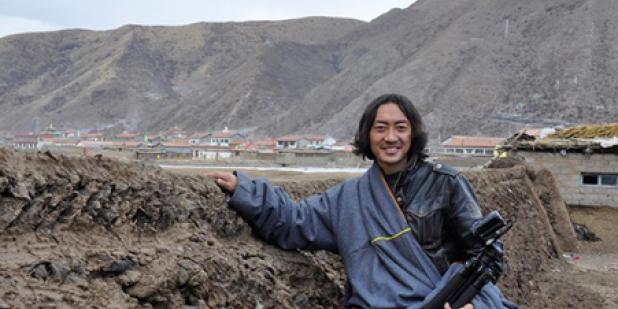Join us for a free one-day workshop for educators at the Japanese American National Museum, hosted by the USC U.S.-China Institute and the National Consortium for Teaching about Asia. This workshop will include a guided tour of the beloved exhibition Common Ground: The Heart of Community, slated to close permanently in January 2025. Following the tour, learn strategies for engaging students in the primary source artifacts, images, and documents found in JANM’s vast collection and discover classroom-ready resources to support teaching and learning about the Japanese American experience.
A Farmer's Struggle and Yak Dung
Documentaries from the Front Lines of China's Environmental Crisis-Part of the film series "Waking the Green Tiger: Documentaries from the Front Lines of China's Environmental Crisis"
Where

Double-bill — registration admits to both films below:
A Farmer's Struggle
Dir. Zhao Liang. China. 2009. 30 min. Chinese with English subtitles.
Desertification has been threatening livelihoods in many parts of China. In Minqin, Gansu province, an aging farmer and his wife are the only inhabitants left in this small village that is increasingly swallowed by the advancing desert. Growing up fishing in a local lake that has since dried up, the farmer now has to drive to another village for water. While the government encourages families to move to Xinjiang with the offer of a subsidy, the old couple stays put — at least for now — to defend their home.
Yak Dung
Dir. Lanzhe. China. 2010. 50 min. Tibetan with English subtitles.
For nomadic families on the Tibetan Plateau, yak dung is a renewable and readily available energy source for staying warm, making sacrifices and providing light. Yak dung is also used to build homes and fences, fertilize grass, and as a medicinal ingredient, detergent, and material for sculptures. It is an indispensable part of the Tibetan culture and livelihood. Living with yak dung is part of a lifestyle that has coexisted with nature for centuries. But more and more people on the plateau are drifting away from this way of life.
Having never before made a film, Director Lanzhe attended film training workshops organized by the Shanshui Conservation Center, a Beijing-based environmental NGO that works in Qinghai, Sichuan, Yunnan, and Shaanxi provinces in western China. Its program “Eyes of the Village Nature and Culture” trains and empowers amateurs to make films to document lives in their own habitats. Many of these trainees, such as Lanzhe, were picking up a camera for the first time in their life.
Q&A to follow with Sun Shan, former Director of the Shanshui Conservation Center. Moderated by Michael Zhao, Multimedia Producer, Center on U.S.-China Relations, Asia Society.
Featured Articles
Please join us for the Grad Mixer! Hosted by USC Annenberg Office of International Affairs, Enjoy food, drink and conversation with fellow students across USC Annenberg. Graduate students from any field are welcome to join, so it is a great opportunity to meet fellow students with IR/foreign policy-related research topics and interests.
RSVP link: https://forms.gle/1zer188RE9dCS6Ho6
Events
Hosted by USC Annenberg Office of International Affairs, enjoy food, drink and conversation with fellow international students.
Join us for an in-person conversation on Thursday, November 7th at 4pm with author David M. Lampton as he discusses his new book, Living U.S.-China Relations: From Cold War to Cold War. The book examines the history of U.S.-China relations across eight U.S. presidential administrations.




